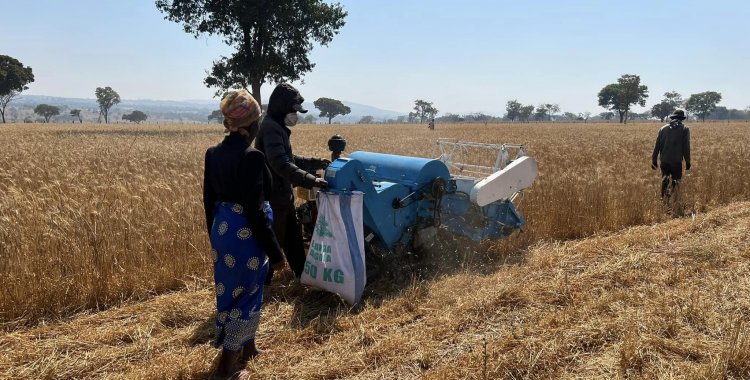According to Rodrigo Botelho, an agronomist and plant science specialist, agricultural production in Angola is still low, despite the growing demand for food due to the population growth each year.
In his view, Angola has the potential to become the "breadbasket" of global agricultural production, since the countries that currently hold this title are facing limitations and have little space to develop, a scenario that is worsened by environmental pressure, writes Angop.
According to Rodrigo Botelho, the country has several resources, such as good soil and abundant water: "Angola has a vast available area, good soil, abundant water and in a few years, with adequate investment, it could be the next agricultural frontier in the world, with large-scale production, which will generate local income and surplus for export".
On the occasion, the specialist also emphasized that by investing in grain production, livestock farming also develops, since feed costs are reduced.
According to the weed researcher at the University of Arkansas (United States of America), it is enough to produce and be confident that, with the appropriate techniques, the harvest will increase, but it is necessary to explore this potential and undertake to achieve success in production, writes Angop.
Silvino Moreira, an expert in soil fertility and plant nutrition, pointed out the fact that Angola, with its natural resources, such as limestone, which is "one of the best", is capable of increasing the supply of calcium and magnesium to plants and at the same time neutralizing soil acidity.
According to the professor at the Federal University of Lavras (Brazil), the use of limestone and gypsum would be the first step for Angola to change from a country that imports food to a "major" producer, both for internal consumption and to sell the excess.
The official also stressed that, by using such methods, as well as direct planting and intercropping systems, as long as the area is well watered, it is possible to harvest more than three tonnes of produce per hectare, as opposed to the current 500, writes Angop.
He also said that Brazilians have made "many mistakes over the last three decades" and do not want "Angola to make the same mistakes", which is why the intention is to "transfer things that have worked in Brazil".
It should be noted that the sharing of experiences between the two countries in the field of agriculture is taking place thanks to a cooperation agreement established between Jardins da Yoba and the Federal University of Lavras, which is valid for 10 years.







